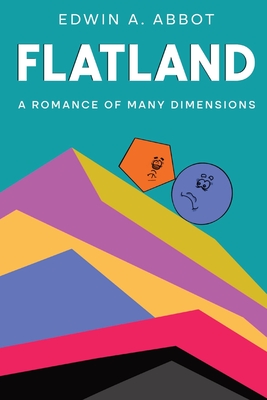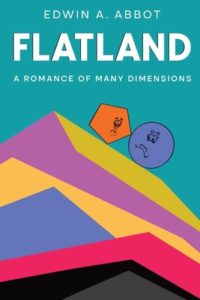Section 15: Concerning a Stranger from Spaceland
bySection 15 begins in the quiet of a reflective evening, marking the final day of the 1999th year. The steady rhythm of the rain had already welcomed the night, and I sat in silence with my wife as we anticipated the arrival of a new age. With our children and grandchildren already retired to their rooms, the moment held a kind of reverence, a solemn appreciation for the cycles of time. There’s something profound about witnessing not just the end of a year, but the close of a millennium. It invites questions about what has passed, what has changed, and what might come. In that hushed space, my mind returned to an earlier conversation with my grandson—a bright young Hexagon, unusually precise and full of promise. A lesson shared during the day continued to echo in my mind, tying numbers to shapes, and tradition to insight.
The day’s teaching had started like many before, with rotational drills in Sight Recognition. Each of us—his uncles and I—took turns rotating at varied speeds, challenging him to guess our shapes and orientations with accuracy. His responses were swift and correct, revealing a keen mind already surpassing his years. Wanting to encourage that brilliance, I introduced him to a geometric puzzle rooted in basic arithmetic. With nine one-inch squares arranged into a perfect three-inch square, I demonstrated a concept that remains central to geometry: the relationship of parts to a whole. It was a simple display, yet it symbolized something larger—the power of abstract thinking and how new understanding can emerge from familiar ideas. This wasn’t just about shapes; it was about helping him see the invisible threads that connect logic, space, and number.
Even in Flatland, where dimensions are limited, there’s always room for intellectual expansion. As I reflected on our interaction, I realized how important it is to foster such minds early. Though our world is bound to two dimensions, our thinking doesn’t have to be. Curiosity, when nurtured, becomes a force capable of pressing against the boundaries of perception. Teaching isn’t only the transfer of knowledge; it’s a way of lighting a spark that may later grow into revelation. This becomes especially true in eras of transition, like the one we stood on the brink of that evening. A new millennium offers not just a calendar change, but a chance to reset how we imagine our reality.
That evening’s quiet was interrupted not by noise but by the gravity of thought. In teaching my grandson, I had glimpsed what lies ahead—not only for him but for all of us. His question, which had seemed so innocent at first, now returned to me with deeper weight. Could there be something beyond the plane we inhabit? Is it possible to imagine a truth beyond our senses? Those questions don’t arrive suddenly—they begin in moments like these, sparked by lessons that seem simple but contain the seeds of transformation. That realization brought both joy and unease, for every new truth has the potential to unmake the old. And in Flatland, where order is sacred, such change is not welcomed easily.
As we waited for midnight, the rain continued its steady cadence. I felt the presence of time moving forward, not in sharp bursts, but in the soft, persistent flow of reflection and anticipation. My wife remained silent, perhaps sensing the same shift that I did, a quiet tension between the known and the possible. The future, for all its uncertainty, always starts in the present moment of thought. If my grandson continued to ask, and if he were guided with care, perhaps he would one day see beyond our plane. Not because he was told, but because he had reasoned it himself. That would be the true promise of the new millennium—not technological progress, but the progress of perception.
In a society where everything is measured and mapped, allowing space for the unknown can be revolutionary. That’s what I felt on that rainy night—the slow turning of an idea, much like we turned our own bodies for recognition. Yet this idea could not be seen or touched; it had to be grasped through reflection, deduction, and belief. The legacy we leave is not in the forms we pass down, but in the questions we help the next generation to ask. If he could wonder, perhaps others would too. And maybe, just maybe, we would no longer be flat in mind, even if we remained flat in form. The moment passed, but its weight stayed with me, marking the turn of not just the year, but of understanding.


